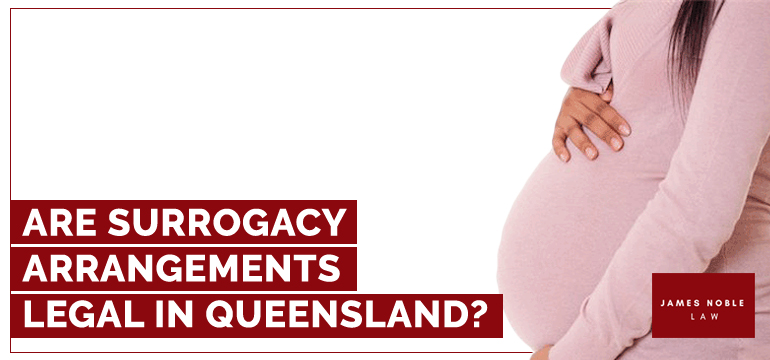
Surrogacy act QLD: Are Surrogacy Arrangements Legal In Queensland?
Prior to the 1st of June, 2010, the surrogacy act QLD was illegal. Since that date the laws have changed, leaving couples who can’t conceive free to source a willing surrogate mother to carry their child full term.
However, there is one key condition.
The surrogate mother cannot receive payment for performing the surrogacy service. This is known as the altruistic arrangements of the surrogacy act QLD.
Where payment for services rendered is received, it would be considered a commercial surrogacy agreement, which is illegal under Queensland law. The definition of commercial surrogacy arrangements is where there is material and/or financial gain for the surrogate mother.
So we have:
- Altruistic Surrogacy – Legal
- Commercial Surrogacy – Illegal
Can a Surrogate Mother Receive Any Form of Financial Assistance?
Throughout the pregnancy, there will be regular medical expenses such as visits to the doctor and ultrasounds, and the laws recognise that it’s both fair and reasonable for the intended parents to cover such expenses.
Other costs that can legally be covered are counseling sessions for the surrogate mother and any legal fees arising from the arrangement.
Paying for these expenses or receiving reimbursement does not constitute a commercial surrogacy situation.
Who Is Eligible To Enter Into a Surrogacy Arrangement?
Regardless of relationship status, any person in Queensland can enter into an altruistic surrogacy arrangement.
The intended parents can be married, in a de facto relationship, a same-sex de facto relationship, or even single.
Conception can be achieved by any of the following methods:
- IVF
- Self-insemination
- Artificial insemination
- Natural conception
Surrogacy act QLD: How a Non-Commercial Surrogacy Arrangement Works
Whether you are the birth mother or the intended parents, you should first seek legal advice before entering into an altruistic surrogacy deal, so you fully understand the process, the laws, and any possible implications regarding surrogacy. Note the eventual parents and birth mother can’t share the same lawyer.
 The birth mother and the intended parents are also required to undergo counseling sessions prior to entering into any surrogacy arrangement.
The birth mother and the intended parents are also required to undergo counseling sessions prior to entering into any surrogacy arrangement.
Before conception takes place the surrogacy agreement needs to be negotiated and put in writing. Stipulations for any expenses incurred during the pregnancy should be included in the agreement and then signed by all parties involved.
The birth mother decides how conception will take place and has full control over the pregnancy throughout its duration.
Once the child is born the birth must be registered with Births, Deaths, and Marriages. After that, a parenting order through the Children’s Court must be obtained to transfer parentage over from the birth mother to the intended parents. This application must be made between 28 days to 6 months after childbirth.
Need Family Law Help and Legal Advice?
If you are going to be the birth mother or intended parents and would like to discuss a possible surrogacy arrangement with a law firm that fully understands the process, then get in touch with the expert team at James Noble Law in Brisbane. Help and advice are only a phone call 07 2112 3947 away.
For more information on the surrogacy act, contact the Brisbane family law team at James Noble Law today for a FREE, no-obligation 20-minute consultation. To schedule an appointment with one of our Qualified and experienced Family lawyers Brisbane.
Find Brisbane family lawyers on Google Maps near you.
You may also like to know more information about the
- Mother withholding child from father Australia.
- Parental Responsibilities and Legislation.
- The different types of Child Support Arrangements.
- Parenting Plan About Future Care Arrangements for your Children.
- Spousal maintenance qld, Brisbane, Australia.
- What is section 61da(1) | Criminal law in Family Law proceedings.
- Learn about family court portal.
- Family law brisbane solicitors.
- How to prepare family reports?
- Learn about the family Law act 1975
- Online Divorce application In Australia.
- Get in touch with brisbane family lawyers



